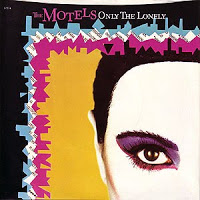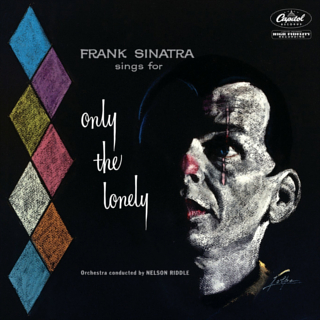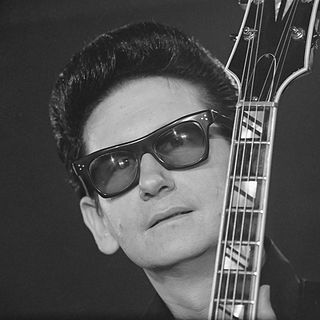
Roy Kelton Orbison was an American singer, songwriter, and musician known for his impassioned singing style, complex song structures, and dark, emotional ballads. The combination led many critics to describe his music as operatic, nicknaming him "the Caruso of Rock" and "the Big O". While most male rock-and-roll performers in the 1950s and 1960s projected a defiant masculinity, many of Orbison's songs instead conveyed vulnerability. During performances, he was known for standing still and solitary and for wearing black clothes to match his dyed jet-black hair and dark sunglasses; all of this lent an air of mystery to his persona.
Roy Orbison and Friends: A Black and White Night is a 1988 Cinemax television special originally broadcast on January 3, 1988, starring triple Hall of Fame inductee rock/pop singer/songwriter Roy Orbison and backing band TCB Band with special guests including Bruce Springsteen, k.d. lang and others. The special was filmed entirely in black and white. After the broadcast the concert was released on VHS and Laserdisc. A live album was released in 1989.

Mystery Girl is the twenty-second album by American singer Roy Orbison. It was completed in November 1988, a month before his death at the age of 52, and according to the official Roy Orbison discography by Marcel Riesco, released on the Virgin record label on January 31, 1989. It includes the hit singles "You Got It", which was co-written by Orbison and his Traveling Wilburys bandmates Jeff Lynne and Tom Petty, and "She's a Mystery to Me", written by Bono and The Edge. The album was a critical and commercial success; it peaked at number 5 on the Billboard 200 in the United States, the highest position Orbison had achieved on that chart, and number 2 on the UK Albums Chart.

Early Orbison is an album recorded by Roy Orbison on the Monument Records label at the RCA Studio B in Nashville, Tennessee, and released in 1964. Essentially a compilation of songs from his first two Monument albums, it is most noteworthy for containing "Pretty One", the "B" side of Orbison's second Monument single, "Uptown". Many Orbison fans believe "Pretty One" would have been his first major hit had it been promoted as an "A" side. The second song of interest on this album is "Come Back to Me My Love" which Fred Foster, owner of Monument Records and producer of all of Orbison's earliest hits, says was the song which inspired production of the hit arrangement that later became "Only the Lonely".
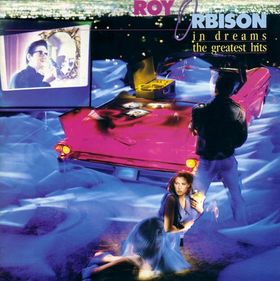
In Dreams: The Greatest Hits is a two-record album set of Roy Orbison songs released in 1987 on Virgin Records. It was produced by Orbison and Mike Utley, except for the song "In Dreams", produced by Orbison with T-Bone Burnett and film director David Lynch. All songs are new recordings by Orbison from 1986, except "In Dreams" from April 1987.
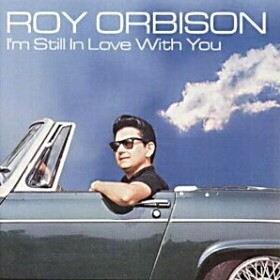
I'm Still in Love With You is the nineteenth album by Roy Orbison, recorded for Mercury Records and released in 1976.

"In Dreams" is a song composed and sung by rock and roll performer Roy Orbison. An operatic ballad of lost love, it was released as a single on Monument Records in February 1963. It became the title track on the album In Dreams, released in July of the same year. The song has a unique structure in seven musical movements in which Orbison sings through two octaves, beyond the range of most rock and roll singers.
"It's Over" is an American song composed by Roy Orbison and Bill Dees and sung by Orbison.
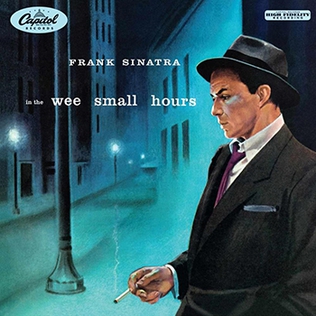
In the Wee Small Hours is the ninth studio album by American vocalist Frank Sinatra. It was released in April 1955 by Capitol and produced by Voyle Gilmore with arrangements by Nelson Riddle. All the songs on the album deal with themes such as loneliness, introspection, lost love, failed relationships, depression and night life. In the Wee Small Hours has been called one of the first concept albums. The cover artwork reflects these themes, portraying Sinatra on an eerie and deserted street awash in blue-tinged street lights.
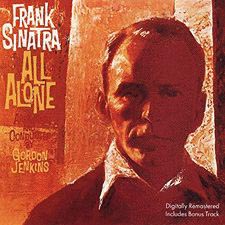
All Alone is an album by Frank Sinatra, released in 1962.

A Black & White Night Live is a Roy Orbison music album made posthumously by Virgin Records from the HBO television special, Roy Orbison and Friends: A Black and White Night, which was filmed in 1987 and broadcast in 1988. According to the official Roy Orbison discography by Marcel Riesco, the album was released in October 1989 and included the song "Blue Bayou" which because of time constraints had been deleted from the televised broadcast. However it did not include the song "Claudette" and "Blue Angel" which were also cut from the original broadcast for the same reason. The SACD/CD Hybrid Audio Disc includes "Blue Angel" as a bonus track - the SACD/CD Hybrid Disc is contained in a pack with the DVD released by Image Entertainment, USA (ID27700BDVD). "Claudette" was included in later releases of the concert. According to Riesco's discography, all tracks are now released on the 30 year anniversary "Black & White Night 30."
"Dream", sometimes referred to as "Dream ", is a jazz and pop standard with words and music written by Johnny Mercer in 1944. He originally wrote it as a theme for his radio program. It has been and performed by many artists, with the most popular versions of this song recorded by The Pied Pipers, Frank Sinatra, and Roy Orbison.

Best of Chris Isaak is a greatest hits album by Chris Isaak released on May 9, 2006 on the Reprise/Warner Bros. Records label.
You Are the One or You're the One may refer to:
Frank Sinatra's musical career began in the swing era in 1935, and ended in 1995.

Classic Campbell is a 3 disc compilation album issued by EMI in 2006, consisting of hit singles, album tracks and a few previously unreleased recordings from the sixties and the seventies. One album track makes its CD debut here, the instrumental "Wimoweh ", from The Astounding 12-String Guitar of Glen Campbell (1963).
"You Only Live Twice", performed by Nancy Sinatra, is the theme song to the 1967 James Bond film of the same name. The music was by veteran Bond film composer John Barry, with lyrics by Leslie Bricusse. The song is widely recognized for its striking opening bars, featuring a simple 2-bar theme in the high octaves of the violins and lush harmonies from French horns. It is considered by some to be among the best James Bond theme songs, and has become one of Nancy Sinatra's best known hits. Shortly after Barry's production, Sinatra's producer Lee Hazlewood released a more guitar-based single version.

"(I'd Be) A Legend in My Time" is a song written and recorded by Don Gibson in 1960. It appeared as the B-side of his hit "Far Far Away", from the album Sweet Dreams. Gibson re-recorded the song on the 1972 album Country Green.
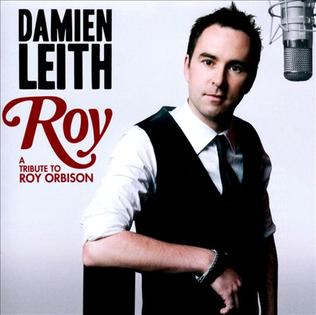
Roy: A Tribute to Roy Orbison is the fourth studio album by Damien Leith. It was released by Sony BMG in Australia on 15 April 2011 to coincide with Roy Orbison's 75th birthday.

